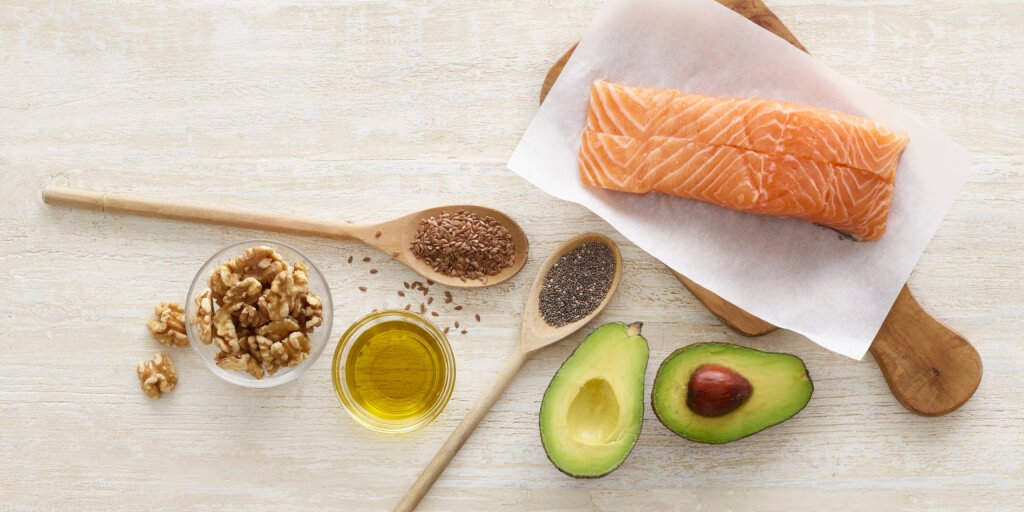As you are reading this, your brain is doing a thousand things at once and your nerves are sending critical signals in every direction to simply read each letter. As scientists continue to discover what our brains can do, we begin to see just how complex the brain really is. Though so much about our brain is a beautiful mystery we still need to understand, many foods have in fact been shown to support our brain health. In various cultures, it was once thought that you should eat foods that look like a part of the human body to provide nutrients to those cells. While research hasn’t proven that to be true, has anyone else ever held a whole walnut in their hand and thought, this kind of looks like a brain? Here is my list of foods you should eat to support brain health, and yes, it includes walnuts.
Walnuts and other nuts
- Walnuts in particular contain omega-3 fatty acids. Omega-3s are critical building blocks for brain cell growth and nerve regeneration.
- Additional nutrients in nuts like other fats, vitamin E, and antioxidants make nuts a powerhouse food for your brain.
- Try adding a handful of nuts (~¼ cup) into your day, every day.
Fatty fish
- Another great source of the nutrient omega-3s is fatty fish.
- When searching for healthy sources of fish, look for cold water, marine fish. You can also search in the Seafood watch app or online to learn more about the most sustainable and contaminant-free fishes to purchase in your area.
Sources of vitamin K
- An insufficient intake of vitamin K has been linked to cognitive decline (1), so to keep your cognitive skills boosted, I recommended eating lots of your dark leafy greens, broccolis, and lettuces.
Caffeine
- While the impact is short term, caffeine has been found to have an impact on mental acuity (2). As long as you have it in moderation, I recommend choosing caffeine sources that are paired with other nutrients such as the antioxidants in tea.
Foods with a high concentration in B vitamins
- These foods are whole grains, legumes, dairy, eggs, meat, seeds, and nuts.
- Try eating a whole grain food every day and add legumes into a vegetarian meal to boost your nutrients and protein.
Berries
- The pigments that give berries their vibrant color are the nutrients that have been linked to brain health (4). These nutrients, called flavonoids, are powerful antioxidants too.
Turmeric
- Another beautiful and colorful food is turmeric. Similar to the pigments in berries, the pigmented compound that gives turmeric its color packs a nutrient punch for your brain as a powerful antioxidant. Try adding this spice to tea, curries, marinades, veggie dips like hummus, or even in a smoothie.
As you can see, there are many foods we can eat to support our brain health. Think about choosing these powerful foods as a way to treat yourself to a healthy, thriving brain. That’s the type of treat your future self will thank you for.
 Sarah is the Shaklee Pure Performance Team dietitian/nutritionist. She is also a two-time competitor for the USA in the Summer Games, participating in the 10-meter Air Rifle event in 2012 and 2016. Her experience as an elite athlete and her status as a Registered Dietitian Nutritionist (RDN) and Licensed Nutritionist (LN) make her perfectly suited to consult with Shaklee athletes on their nutritional needs. Sarah graduated from Texas Christian University in Fort Worth, Texas with a BS in Nutrition in 2013 and then earned an MBA in Entrepreneurship and Healthcare Management. She specializes in weight loss, improved sport performance, diabetes prevention, heart health, healthy aging, smoking cessation, and performance goals. Her hobbies include church ministries, mountaineering, physical fitness, and gardening. Keep up with her on her website or on Instagram, Facebook, or Twitter.
Sarah is the Shaklee Pure Performance Team dietitian/nutritionist. She is also a two-time competitor for the USA in the Summer Games, participating in the 10-meter Air Rifle event in 2012 and 2016. Her experience as an elite athlete and her status as a Registered Dietitian Nutritionist (RDN) and Licensed Nutritionist (LN) make her perfectly suited to consult with Shaklee athletes on their nutritional needs. Sarah graduated from Texas Christian University in Fort Worth, Texas with a BS in Nutrition in 2013 and then earned an MBA in Entrepreneurship and Healthcare Management. She specializes in weight loss, improved sport performance, diabetes prevention, heart health, healthy aging, smoking cessation, and performance goals. Her hobbies include church ministries, mountaineering, physical fitness, and gardening. Keep up with her on her website or on Instagram, Facebook, or Twitter.






